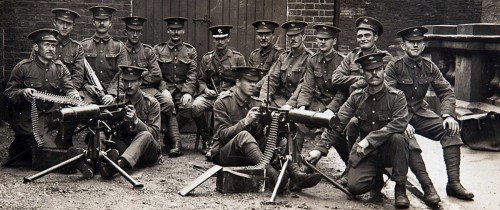Todo ello demanda formular que una de las metas del programa de la revolución integral sea el derrocamiento revolucionaria de la sociedad actual, o infierno convivencial, con el fin de que exista libertad para el afecto, la convivencia y el amor, dado que hoy sólo la hay para el aborrecimiento y la pugna interpersonal, la soledad y el desamor.
Los ilustrados dieciochescos crearon el “homo oeconomicus”, Adam Smith sobre todo, el cual se satisface y realiza con la riqueza material. Esta formulación, decididamente burguesa, está en la base de los proyectos “emancipadores” de naturaleza obrerista y social urdidos en el siglo XIX y todavía vigentes aunque ya en su fase final. Significa que el ser humano tiene necesidades materiales pero no necesidades espirituales, entre ellas la de convivir con sus iguales recibiendo y dando afecto. Esto es muy desacertado, y además monstruoso e inhumano.
La cosa es, asimismo, chusca pues Adam Smith y demás próceres del economicismo se referían a cuestiones militares, no a la existencia cotidiana del sujeto común. Su meta era una sociedad de riqueza material máxima a fin de que Inglaterra pudiera armar una enorme flota de guerra que le diera la hegemonía planetaria imperialista, como así sucedió. Al mismo tiempo, esa sociedad tenía que ser de miseria convivencial y espiritual, para construir al sujeto dócil -por solitario y desestructurado- que obedece y se somete a las instituciones estatales que le tiranizan y a los empresarios que le explotan.
Hoy se ha realizado la sociedad con que deliró T. Hobbes, vehemente partidario del despotismo del Estado. Ya cada ser humano es un “lobo” para los demás seres humanos, y lo que padecemos es “la guerra de todos contra todos” con el ente estatal (cada día más policiaco, funcionarial, tecnologizado, militarizado y poderoso económicamente) vigilando y castigando a esta inmensa horda de infra-seres que se ignoran y se agreden, la sociedad actual.
A más desamor más Estado. A más desamor más debilidad e impotencia del sujeto, y menos lucha por la libertad y menos libertad.
La hostilidad de unos contra otros toma un sinnúmero de formas. Se trata a los iguales sin respeto, sin cortesía, sin humanidad, sin hermandad, sin afecto salido del corazón, considerándolos como causa de utilidades para el ego y nada más, cuando no como presas a las que parasitar y expoliar. Se agrede a los demás con el desaliño personal, con la palabra agria y descompuesta, con la “sinceridad” que sólo ve en el otro lo negativo, con el chismorreo demoledor, con la “espontaneidad” que niega el autodominio necesario para que la convivencia sea, con la astucia y el maquiavelismo que concibe al igual como criatura a la que rapiñar y saquear.
La pérdida de las capacidades relacionales y convivenciales es una de las patologías más aterradoras de la sociedad actual. Ya no hay un lenguaje del afecto, ni un saber estar en la convivencia, ni una voluntad de hacer la existencia más agradable a los otros, ni un deseo de servir desinteresadamente, ni un saber escuchar, ni un negarse a sí mismo por el bien de los iguales. Todo ello se tapa con fórmulas muertas de urbanidad, sonrisas que son meras muecas cuando no herramientas de mercadotecnia y un uso abusivo en ciertos sectores del vocablo “amor”. Es más, las poquísimas personas que todavía resultan capaces de expresar en actos su afecto son recibidas con desconfianza y recelo, pues se considera tal manera de ser como una argucia dirigida a alcanzar no sé sabe que metas secretas…
En tal situación hay que proclamar con la pertinente solemnidad e incluso prosopopeya que el ser humano tiene necesidades afectivas y emocionales, que éstas son imprescindibles para su realización como persona y que si no las satisface enferma, del alma y del cuerpo, y enloquece. E incluso se quita la vida. Así es, pues la gran mayoría de los miles que se suicidan cada año lo hacen al no satisfacer sus apremiantes necesidades de cariño, compañía y erotismo, más que por pobreza material.
Una vida sin afectos no es una vida humana propiamente dicha sino una infra-vida en la que la persona queda entregada al peor y mayor de los sufrimientos, la ausencia de amor y de amor al amor.
Han sido aniquiladas en su casi totalidad la amistad, la simpatía, el compañerismo, la camaradería, la vecindad [1], la cordialidad, el sexo como erotismo (o sea, con expresiones mayores o menores pero perceptibles de amor), el enamoramiento, las relaciones de familia, la alegría de estar juntos, el hacer de uno mismo una obra de arte ofrecida desinteresadamente a los iguales, la capacidad para realizar tareas colectivas, la vida asociativa no jerárquica y casi cualquier forma del “nosotros”. Se ha esfumado la simpatía en el mirar, la comprensión en el estar, la elegancia en el mostrarse y la gracia en el contar. Apenas queda capacidad de reír unidos ni de de estar juntos en los malos momentos. No hay ya ritos convivenciales, trabajos en común, encuentros realmente amorosos, fiestas en las que el mutuo afecto, y no el alcohol y las drogas, sea lo decisivo.
Hemos sido despojados de una percepción cardinal de la condición humana, aquélla en la que el otro aparece como amigo en actos y no como enemigo. Por eso estamos tan enfermos. Por eso somos tristes hasta lo lúgubre, aburridos hasta lo tedioso, egocentristas hasta lo disfuncional [2], vacios y superficiales hasta lo grotesco. Somos (fuimos) ricos materialmente pero en todo lo demás, en lo que afecta a la vida del espíritu, somos paupérrimos. Y esto nos está, literalmente, matando [3].
En el actual desierto relacional e infierno convivencial no queda apenas nada más que ruinas y cenizas, entre las que deambulan criaturas solitarias, cada vez más degradadas del cuerpo y del espíritu, sometidas a grados descomunales de tristeza, malestar, angustia, ansiedad, depresión y otras varias formas de sufrimiento anímico, lo que ahora se llama “dolor de vida”, que el sistema trata con antidepresivos, cuyo consumo ¡se está doblando cada diez años! En particular, las mujeres han sido hechas consumidoras compulsivas de píldoras contra la desesperación, ocasionada por ser forzadas a vivir una vida que: 1) no es humana, 2) no es apropiada en absoluto para las mujeres, la del actual régimen neo-patriarcal.
Cada vez más personas están indisponiéndose psíquicamente, enloqueciendo, por causa del agravamiento del conflicto interpersonal y la pérdida de las prácticas, saberes y capacidades relacionales. Alcanzado un determinado porcentaje de sujetos disfuncionales por ruina de su estabilidad psíquica debido a la represión de las necesidades afectivas y relacionales (lo que incluye la persecución, cada día más feroz, del erotismo heterosexual) la sociedad difícilmente podrá mantenerse, pues no habrá recursos humanos ni medios materiales para atender a tantos seres incapaces, disminuidos o enfermos. Esta es una de las causas profundas de la actual crisis económica de Occidente, que ni vislumbran los maníacos del economicismo.
La soledad produce pánico, y el pánico hace perder el juicio. Y el enloquecimiento, cuando como hoy es crónico, enferma. También el cuerpo, no sólo la mente. Un buen número de dolencias corporales nuevas cada día más comunes y que hasta hace unos decenios eran rarísimas sólo pueden explicarse a partir de las formas antinaturales de existencia que el actual sistema de dictadura impone al ser humano de las clases populares, en primer lugar la soledad, el odio mutuo y el desamor.
Una mente enferma crea un cuerpo enfermo. La naturaleza ha hecho al ser humano para la relación y la convivencia pero el actual sistema le condena a la incomunicación y la represión de su afectividad: de ese conflicto proviene hoy una parte mayor de la degradación física y psíquica de la especie.
La destrucción de la existencia hermanada con conversión del individuo en un sujeto asocial incapaz de amar está en el centro mismo de las revoluciones liberales, siendo uno de los puntos decisivos de su programa, quizá el más decisivo. En el proyecto liberal sólo hay dos actores, uno es el Estado hipertrófico (y su criatura, el capitalismo), el otro es el sujeto común atomizado y aislado, expulsado a pesar de sí mismo de todas las formas preexistentes de convivencia, sociabilidad, juntas o asambleas de los iguales y sistemas comunales de trabajo, siempre asociados a fiestas convivenciales. Está solo frente al ente estatal y por eso mismo desasistido y débil de manera máxima, impotente para resistir y mucho más para derrocar al nuevo Estado invasivo, totalitario e hiper-tiránico [4].
Por eso la revolución liberal es una catarata de actos políticos, jurídicos, económicos, amaestradores y propagandísticos que buscan la individualización absoluta, nadificadora y definitiva del sujeto popular. El concejo abierto, las formas asamblearias de autogobierno y vida política, que eran el fundamento mayor, junto con el comunal, del afecto y la convivencia, es relegado y nulificado. Los bienes comunales, tierras y muchísimo más que tierras, son privatizados, destruyendo la base económica de la existencia unida y fraternal, afectivamente muy satisfactoria, de las sociedades preliberales. Sin vida política ni vida económica colectivista, ¿cómo va a darse el cariño, la intimidad, la cordialidad, la cortesía y la convivencia en las relaciones interpersonales, dado que son precondiciones del amor de unos a otros?
El régimen partitocrático enfrenta a las personas entre sí, lanzando a unas contra otras y creando dolorosas divisiones en el cuerpo social, por causa de las banderías políticas, en sí mismas insignificativas pero maximizadas y teatralizadas para dividir, amaestrar en el odio y provocar desencuentros. La misma función desempeñan el racismo, que enfrenta a las personas por el color de su piel, cada día más preocupante en sus expresiones renovadas, los odios promovidos por los fanatismos religiosos, el enfrentamiento entre generaciones y la pavorosa ascensión teledirigida del sexismo político, en sus dos formas, misoginia y androfobia.
 El trabajo asalariado, esa inmensa maldición sin cuya erradicación la sociedad actual no puede regenerarse en lo convivencial, lo ético, lo reflexivo y lo cívico, amaestra en obedecer y en temer, llena los espíritu de odio, crea un conflicto universal permanente y despoja al trabajador asalariado de lo más sustantivo de su condición humana, haciéndole inhábil para las relaciones sin dominadores ni dominados, afectuosas por horizontales. El Estado de bienestar, apoyado por los peores enemigos del género humano, “resuelve” y “satisface” con la asistencia estatal lo que debería solventarse por los procedimientos de mutua ayuda, cooperación y convivencia, de donde resultaría una expansión de lo afectuoso, y en consecuencia una satisfacción de las necesidades de devoción, apego y cariño de las personas.
El trabajo asalariado, esa inmensa maldición sin cuya erradicación la sociedad actual no puede regenerarse en lo convivencial, lo ético, lo reflexivo y lo cívico, amaestra en obedecer y en temer, llena los espíritu de odio, crea un conflicto universal permanente y despoja al trabajador asalariado de lo más sustantivo de su condición humana, haciéndole inhábil para las relaciones sin dominadores ni dominados, afectuosas por horizontales. El Estado de bienestar, apoyado por los peores enemigos del género humano, “resuelve” y “satisface” con la asistencia estatal lo que debería solventarse por los procedimientos de mutua ayuda, cooperación y convivencia, de donde resultaría una expansión de lo afectuoso, y en consecuencia una satisfacción de las necesidades de devoción, apego y cariño de las personas.
La competición económica oculta y vela lo que es notable causa de eficacia económica, la cooperación en el trabajo productivo entre personas igualmente propietarias de los medios de producción. Dicha competición lanza a unos seres humanos contra los otros, lleva a formas cada día más monstruosas y homicidas (además de, cada vez más, suicidas) de codicia y avidez por el dinero haciendo imposible la convivencia. Al mismo tiempo hay que señalar que el creciente espíritu competitivo de las sociedades actuales, hiper-burguesas porque la gran mayoría de lo que antaño fueron clases trabajadoras se ha adherido a la cosmovisión burguesa del mundo (que es la del economicismo, o preeminencia de lo económico), crea un conflicto social e interpersonal creciente en el que se derrochan estúpidamente cantidades fabulosas de recursos materiales, energía humana y tiempo de vida.
Sin sustituir la competencia por la cooperación en el trabajo productivo no es posible minimizar el tiempo de trabajo, ofrecer una vida material decorosa a todos los seres humanos y reducir el consumo de recursos naturales, limitando o incluso erradicando la devastación medioambiental. Pero ese gran cambio demanda una revolución social, de naturaleza integral, y también una revolución interior, que ha de tener lugar en lo más profundo del corazón de cada ser humano por libre albedrío.
No hay mayor alegría que la del amor mutuo ni mayor goce que el compartirlo todo. Si la burguesía vive en la posesividad, la competencia y el odio de unos a otros, quienes sean anti-burgueses de cabeza y corazón tienen que elegir para sí los valores que nieguen esos disvalores.
La existencia misma del Estado, como gobernante y dominador del pueblo, establece la peor forma de diferenciación con enfrentamiento y odio entre los seres humanos. Donde las gentes quedan divididas en mandantes y mandados, administradores y administrado, amenazantes (cuando no verdugos) y amenazados, adoctrinadores y adoctrinados, no puede haber afecto mutuo ni puede edificarse una sociedad en la que el apego y el amor sean universales.
Eso es tan verdad que el actual infierno convivencial, en el que nos atormentamos, deshumanizamos y parecemos, lo ha construido ante todo el Estado, en la forma concreta que adopta éste hoy, como ente aberrante y monstruoso emergido de las revoluciones liberales, que adopta, para seguir el análisis de Otto Hintze, primero la forma de “Estado liberal” y después la de “Estado total” o, como ese autor expone, “Estado que interviene en toda la vida del pueblo” [5], lo que expresa el máximo de despotismo estatal, que nulifica a la persona y contamina a todo el cuerpo social de relaciones jerárquicas y desiguales, fundamentadas en el mando y la obediencia, en el temor, el rencor, el aborrecimiento y la sanción, haciendo con ello imposible las relaciones de afectuosidad, responsabilidad, participación y afecto.
Una sociedad convivencial, donde el apego y la mutua asistencia sean la piedra angular de la vida colectiva, ha de ser libre y democrática, con participación de todas y todos en la vida política y social, en todas las tareas deliberativas, legislativas, judiciales, fiscalizadoras y ejecutivas. Eso no sucede ni puede suceder en una sociedad con Estado, porque en ella sólo hay libertad para expresar y hacer lo que conviene al Estado y está conforme con la razón de Estado, Además, si el Estado gobierna a la sociedad es que ésta no se autogobierna a sí misma, y por lo tanto no es democrática.
Una sociedad entregada a toda tipo de dogmatismos y fanatismos, desde las teorías académicas a las religiones políticas pasando por las utopías sociales, que se imponen desde arriba al pueblo y que dividen y enfrentan a éste, no es espacio para el afecto y realización de la vida espiritual, no es otra cosa que un infierno convivencial. Por eso hay que desarticular los aparato de manipulación académica de las mentes, el sistema educativo, sea “público” o privado, y la universidad, para construir un orden culturizador sustentado en la libertad de conciencia, la autoeducación popular y la adhesión, libre y autodeterminada, al saber, la cultura, la verdad y el conocimiento.
Lo relacional crea comunidad, crea asociación, crea grupos y equipos viables, crea comunidad, crea “nosotros”. Sin todo eso ahora no se puede hacer prácticamente nada. Los proyectos colectivos fracasan, en la gran mayoría de los casos, por el factor convivencial. La vida asamblearia es escasa, triste y áspera en buena medida porque el sujeto medio contemporáneo no sabe convivir, es un ser egocentrado, solitario e insociable que no sabe estar en casi ninguna expresión de lo colectivo, desde la vida erótico-amorosa a la acción transformadora de la sociedad, que ha de ser, en efecto, agrupada y asociativa. Por eso la autoconstrucción del sujeto es precondición, y no sólo epifenómeno, de cualquier proyecto revolucionario que sea eso realmente, revolucionario.
Ahora bien, proyectar salir del actual infierno convivencial exclusivamente por la vía de los cambios políticos, estructurales, económicos y sociales es equivocarse. Tiene que haber una voluntad del sujeto en tanto que persona diferenciada, delimitada y recogida, como ser humano capaz de plasmar su libertad personal escogiendo a solas consigo mismo, con responsabilidad y libertad de elección, el afecto, la convivencia, la hermandad y el amor en tanto que metas personales.
El amor no es sólo una emoción ni una pasión ni un estado anímico sino ante todo una práctica. Es más, una práctica que se ha de convertir en hábito. No hay que esperar a las transformaciones sociales antes mencionadas para imponerse y exigirse a sí mismo y a sí misma un extenso programa destinado a hacer sublime la relación con los demás, que lleva a la metamorfosis de la propia personalidad, desde ser asocial a sujeto afectuoso. Hay unas normas de la amistad, el compañerismo, la cortesía [6], las buenas maneras, el espíritu de servicio, la familiaridad, la alegría de estar juntos, el auto-negarse y el servir con actos de amor que se pueden y deben practicar ya. No podemos, sólo por la acción individual, erradicar la sociedad infierno convivencial, cierto es, pero sí podemos con ella vencerla en infinidad de pequeñas batallas parciales, poniéndola a la defensiva y haciéndola retroceder.
Tiene que haber un compromiso personal y una práctica personal en el combate por el afecto y contra el infierno convivencial. El politicismo no es adecuado.
Pero hay que pensar y obrar con realismo, aceptando la enorme complejidad inherente a las cuestiones tratadas. Nunca habrá una sociedad convivencial perfecta, ni unos seres humanos que no estén “bipartidos”, que no sean una mezcla de bien y mal. La reciprocidad es necesaria, por lo que el otorgar amor debe ir unido a la demanda de recibir amor. En una sociedad perversa e inmoral como la actual hay que precaverse frente a parásitos y depredadores. A quienes predican e imponen el odio y el desamor hay que enfrentarles con firmeza, constancia y valentía, lo que lleva a conflictos muy fuertes. Toda reducción de la noción de amor a una ñoñería de parvulario, o a una cursilada de ONG, es rechazable pues el afecto es servir, esforzarse, padecer, pelear y ser fuertes. Todo eso significar que el amor real es finito, que va necesariamente unido a formas de desamor y que es imperfecto. Su irrealidad se realiza en el mundo de la fantasía y su realidad en el de la práctica social y personal.
Con todo ello recuperaremos, además, la gran tradición colectivista, convivencial, cordial, asamblearia, jubilosa, comunal, cálida y fraternal de los pueblos de la península Ibérica, hoy casi del todo destruida por la hiper-extensión del Estado y la gran empresa capitalista.
[1] Hoy no se podría publicar un estudio como el de Bonifacio de Echegaray, “La vecindad. Relaciones que engendra en el País Vasco”, San Sebastián 1933, Eusko-Ikaskuntza. El motivo es que ya en ningún lugar quedan relaciones de vecindad. Hasta no hace mucho la convivencia con las y los vecinos era una parte crucial de la vida humana, pues había con ellos una ayuda mutua y asistencia emocional que hacía la vida agradable, alegre y satisfactoria, además de mucho mejor en el sentido práctico pues, por ejemplo, la cooperación vecinal era de enorme significación en la crianza de la prole, lo que hacía a la maternidad fácil, descansada y llevadera. Hoy los vecinos se desconocen e ignoran, en el mejor de los casos, y en el peor se odian y hostilizan. Hasta aquí hemos llegado en la destrucción de todas las formas de relación, afecto y amor.
[2] Expone Max Scheler en “Esencia y formas de la simpatía” que el egocentrismo es como un “hundirse en sí mismo” y vincula este catastrófico derrumbamiento hacia dentro del yo, al que tiene por una expresión de solipsismo, con el libro de Max Stirner “El único y su propiedad”, un manual del más tosco egoísmo burgués.
[3] Quizá por eso se lee en la “Primera epístola de San Juan” que “quien no ama permanece en la muerte”.
[4] Como refutación de que lo relacional es sólo personal y no al mismo tiempo social, institucional, estructural y político, tenemos “Hieron o sobre la tiranía” de Jenofonte. Aduce que el tirano al ser odiado y no amado lleva una existencia penosa, en la que se acumulan disfunciones y dolores. Dado que “lo carnal proporciona un placer muy señalado cuando va unido al amor”, al tirano le resulta muy difícil tener un erotismo satisfactorio, lo que es una gran desgracia pues “el que no conoce el amor es desconocedor de los más dulces placeres”. Añade que “el tirano jamás puede estar seguro de que es amado” lo que le condena a la soledad absoluta. Esta reflexión sobre el despotismo y el desamor es aplicable a la sociedad actual, en la que sólo hay relaciones de poder, en las que unos individuos tiranizan a otros pero los tiranizados lejos de buscar la libertad general se ponen como meta “liberarse” de un modo bien triste, haciéndose déspotas mañana, pues sólo saber ser o dominadores o dominados, nunca amadores de sus iguales. En tal situación el amor, en todas sus formas, y por tanto el erotismo, son de facto imposibles. Por tanto, hay unas estructuras anti-amorosas que deber ser desarticuladas por vía revolucionaria, si se desea que el ser humano conquiste la libertad para amar, y así ser sano de cuerpo y mente.
[5] En su libro “Historia de las formas políticas”. Quienes propenden a olvidar, en sus análisis y en sus compromisos políticos y sociales, la existencia y función del Estado, deberían estudiar a ese autor que, a pesar de sus desatinos y carencias, hace formulaciones tan verdaderas como la que sigue, “el capitalismo … tiene un parentesco interno con la razón de Estado”, de manera que lejos de ser el Estado quien “defiende” o “protege” a las masas del capitalismo es quien se lo impone a éstas, por causa de la razón de Estado.
[6] Hoy, en una época de zafiedad, cortedad y seres nada, de zoquetes autosatisfechos y ramplonería universal, no interesa la cortesía, que en general es recibida con mofas. Pero todavía no está todo perdido, puesto que se publican algunos textos que, aunque sea de modo tangencial, se ocupan de ella, como “La gramática de la cortesía en español”, Catalina Fuentes Rodríguez.
Fuente: Esfuerzo y Servicio Desinteresados



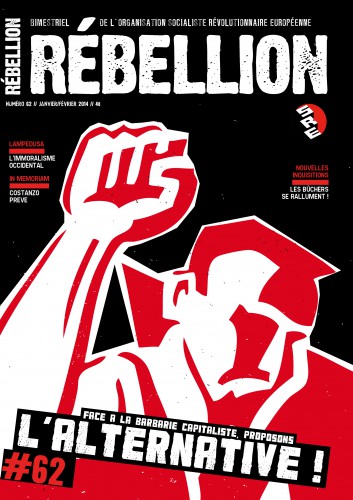
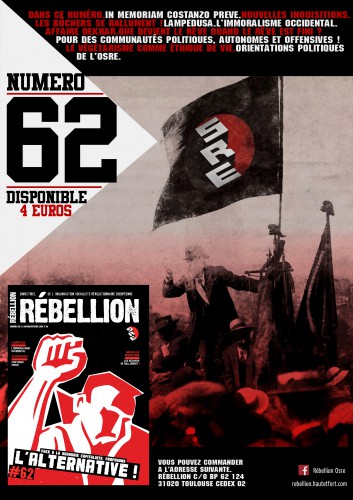

 del.icio.us
del.icio.us
 Digg
Digg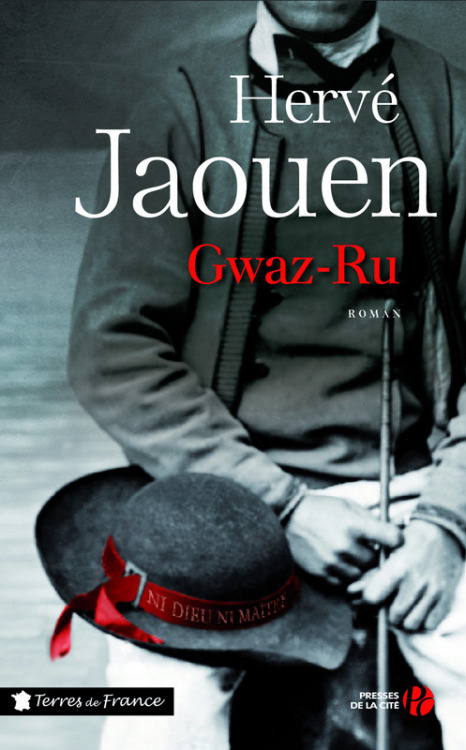


 Mohamed Morsi, déposé le 3 juillet 2013, était le seul président élu démocratiquement en Egypte, et le premier non issu des rangs de l'armée, à diriger le plus peuplé des pays arabes. Tout le week-end, des manifestations et des heurts ont agité le Caire laissant à l'anniversaire des trois ans de la révolution un goût plutôt amer. Le général Mohamed Saïd, chef du bureau technique du ministère de l'intérieur égyptien, a été tué mardi 28 janvier dans la capitale égyptienne par des inconnus qui ont ouvert le feu sur lui, selon les services de sécurité du pays. Cet assassinat survient en pleine vague de répression sanglante de toute manifestation des partisans des frères musulmans et de toute une série d'attentats djihadistes visant les forces de l'ordre.
Mohamed Morsi, déposé le 3 juillet 2013, était le seul président élu démocratiquement en Egypte, et le premier non issu des rangs de l'armée, à diriger le plus peuplé des pays arabes. Tout le week-end, des manifestations et des heurts ont agité le Caire laissant à l'anniversaire des trois ans de la révolution un goût plutôt amer. Le général Mohamed Saïd, chef du bureau technique du ministère de l'intérieur égyptien, a été tué mardi 28 janvier dans la capitale égyptienne par des inconnus qui ont ouvert le feu sur lui, selon les services de sécurité du pays. Cet assassinat survient en pleine vague de répression sanglante de toute manifestation des partisans des frères musulmans et de toute une série d'attentats djihadistes visant les forces de l'ordre.
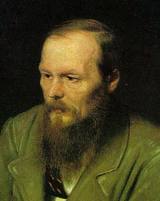





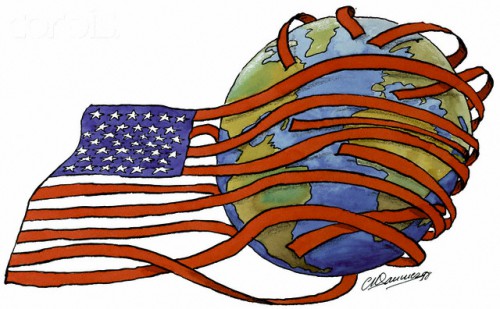

 dominera longtemps avant d’être détrôné par la couleur. S’il doit faire face à cette concurrence dans divers autres aspects, il n’en reste pas moins fort présent et apprécié dans la mode et le stylisme. Il est, en outre, la couleur rebelle par excellence (même si il devient de plus en plus commun et n’impressionne plus autant qu’avant) qui était celle des pirates quelques siècles auparavant et que l’on retrouve désormais chez les rockeurs par exemple. Son aspect politique est primordial et il se retrouve rarement porté par des modérés… Anarchistes, nihilistes, fascistes l’utilisèrent (et l’utilisent parfois encore…) et la SS en fera sa couleur phare. Malgré tout, Pastoureau estime que le noir se normalise peu à peu même s’il reste indéniablement associé aux superstitions anciennes ou actuelles… Même les changements de mentalité ne peuvent effacer la symbolique profonde d’une couleur qui a été parmi les plus importantes dans le système symbolique européen et que nous, au CNC, avons logiquement choisie pour nous représenter.
dominera longtemps avant d’être détrôné par la couleur. S’il doit faire face à cette concurrence dans divers autres aspects, il n’en reste pas moins fort présent et apprécié dans la mode et le stylisme. Il est, en outre, la couleur rebelle par excellence (même si il devient de plus en plus commun et n’impressionne plus autant qu’avant) qui était celle des pirates quelques siècles auparavant et que l’on retrouve désormais chez les rockeurs par exemple. Son aspect politique est primordial et il se retrouve rarement porté par des modérés… Anarchistes, nihilistes, fascistes l’utilisèrent (et l’utilisent parfois encore…) et la SS en fera sa couleur phare. Malgré tout, Pastoureau estime que le noir se normalise peu à peu même s’il reste indéniablement associé aux superstitions anciennes ou actuelles… Même les changements de mentalité ne peuvent effacer la symbolique profonde d’une couleur qui a été parmi les plus importantes dans le système symbolique européen et que nous, au CNC, avons logiquement choisie pour nous représenter.

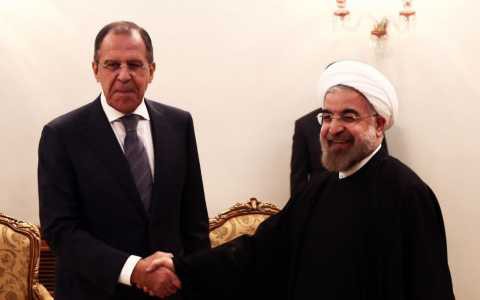

 El trabajo asalariado, esa inmensa maldición sin cuya erradicación la sociedad actual no puede regenerarse en lo convivencial, lo ético, lo reflexivo y lo cívico, amaestra en obedecer y en temer, llena los espíritu de odio, crea un conflicto universal permanente y despoja al trabajador asalariado de lo más sustantivo de su condición humana, haciéndole inhábil para las relaciones sin dominadores ni dominados, afectuosas por horizontales. El Estado de bienestar, apoyado por los peores enemigos del género humano, “resuelve” y “satisface” con la asistencia estatal lo que debería solventarse por los procedimientos de mutua ayuda, cooperación y convivencia, de donde resultaría una expansión de lo afectuoso, y en consecuencia una satisfacción de las necesidades de devoción, apego y cariño de las personas.
El trabajo asalariado, esa inmensa maldición sin cuya erradicación la sociedad actual no puede regenerarse en lo convivencial, lo ético, lo reflexivo y lo cívico, amaestra en obedecer y en temer, llena los espíritu de odio, crea un conflicto universal permanente y despoja al trabajador asalariado de lo más sustantivo de su condición humana, haciéndole inhábil para las relaciones sin dominadores ni dominados, afectuosas por horizontales. El Estado de bienestar, apoyado por los peores enemigos del género humano, “resuelve” y “satisface” con la asistencia estatal lo que debería solventarse por los procedimientos de mutua ayuda, cooperación y convivencia, de donde resultaría una expansión de lo afectuoso, y en consecuencia una satisfacción de las necesidades de devoción, apego y cariño de las personas.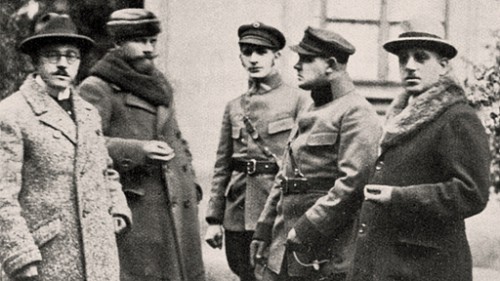
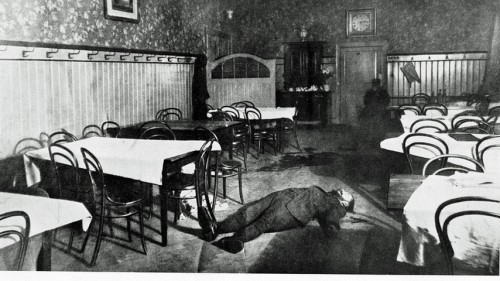
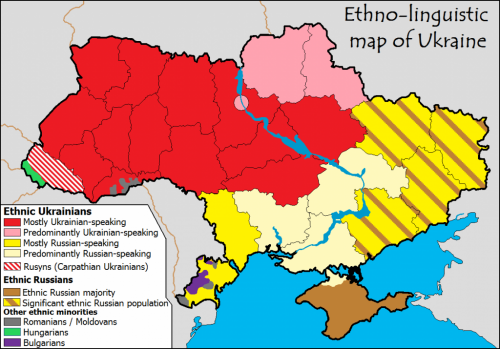

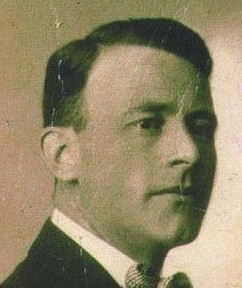 Carl Schmitt usa el concepto de Nomos para la construcción de su teoría sobre los órdenes políticos, los cuales se cambian uno a otro en las diferentes épocas. Rindiendo tributo al genio alemán, no podemos pasar por alto el hecho de que él estuvo implicado de forma natural en el paradigma científico europeo, e interpreta el concepto de la Ley en este contexto. Pero si nos ponemos a criticar el eurocentrismo y sus raíces helénicas, eso nos obliga a iniciar el análisis comparativo exhaustivo y el revisionismo de la teoría de Schmitt. Por ejemplo, desde el punto de vista de la teoría eurasiática clásica y los filósofos rusos, que apelan a la Ortodoxia, algunas tesis de Schmitt puede ser discutibles. No es casual que el filosofo ruso Vadim Kozhinov afirmara que el Occidente es inherente a lo que debe definirse como nomocracia – el poder de la ley -, y las sociedades asiáticas representan la etocracia – de la palabra griega etos: costumbre. Al mismo tiempo él consideraba a Bizancio como un estado ideocrático.
Carl Schmitt usa el concepto de Nomos para la construcción de su teoría sobre los órdenes políticos, los cuales se cambian uno a otro en las diferentes épocas. Rindiendo tributo al genio alemán, no podemos pasar por alto el hecho de que él estuvo implicado de forma natural en el paradigma científico europeo, e interpreta el concepto de la Ley en este contexto. Pero si nos ponemos a criticar el eurocentrismo y sus raíces helénicas, eso nos obliga a iniciar el análisis comparativo exhaustivo y el revisionismo de la teoría de Schmitt. Por ejemplo, desde el punto de vista de la teoría eurasiática clásica y los filósofos rusos, que apelan a la Ortodoxia, algunas tesis de Schmitt puede ser discutibles. No es casual que el filosofo ruso Vadim Kozhinov afirmara que el Occidente es inherente a lo que debe definirse como nomocracia – el poder de la ley -, y las sociedades asiáticas representan la etocracia – de la palabra griega etos: costumbre. Al mismo tiempo él consideraba a Bizancio como un estado ideocrático.

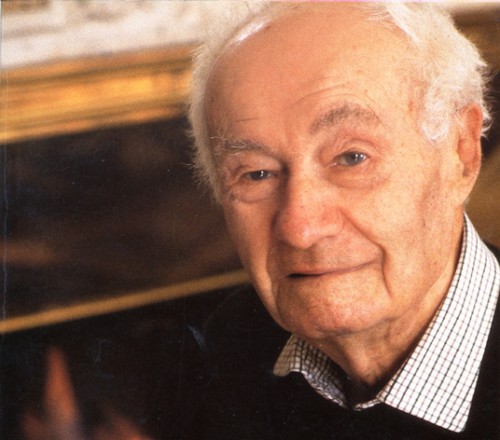
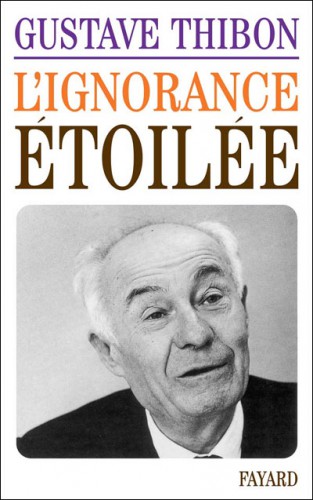 En effet, Thibon n’est pas fondamentalement contre le principe révolutionnaire, si tant est qu’elle laisse sa place à une société purgée de ses vices, libérées de membres malades, et prête au développement de ses vertus naturelles. Ce qu’il condamne, par contre, c’est l’absence de révolution intérieure, au profit d’une révolution extérieure où triomphe la loi du nombre et du pouvoir des masses. A ce titre, d’ailleurs, il se revendique comme plus révolutionnaire que « beaucoup d’hommes de gauche » :
En effet, Thibon n’est pas fondamentalement contre le principe révolutionnaire, si tant est qu’elle laisse sa place à une société purgée de ses vices, libérées de membres malades, et prête au développement de ses vertus naturelles. Ce qu’il condamne, par contre, c’est l’absence de révolution intérieure, au profit d’une révolution extérieure où triomphe la loi du nombre et du pouvoir des masses. A ce titre, d’ailleurs, il se revendique comme plus révolutionnaire que « beaucoup d’hommes de gauche » :
 Avec les Ainu, objet de cet article, les 1,4 million d’habitants des îles Ryûkyû (actuelle préfecture d’Okinawa, annexée en 1879, puis occupée par l’armée étatsunienne entre 1945 et 1972) ont aussi bénéficié d’un statut particulier, parce que peuple autochtone. Engagés dans la lutte pour la rétrocession de l’île au Japon, les habitants d’Okinawa ont vu leur niveau de vie nettement amélioré, bien qu’encore inférieur à celui des autres préfectures japonaises.
Avec les Ainu, objet de cet article, les 1,4 million d’habitants des îles Ryûkyû (actuelle préfecture d’Okinawa, annexée en 1879, puis occupée par l’armée étatsunienne entre 1945 et 1972) ont aussi bénéficié d’un statut particulier, parce que peuple autochtone. Engagés dans la lutte pour la rétrocession de l’île au Japon, les habitants d’Okinawa ont vu leur niveau de vie nettement amélioré, bien qu’encore inférieur à celui des autres préfectures japonaises.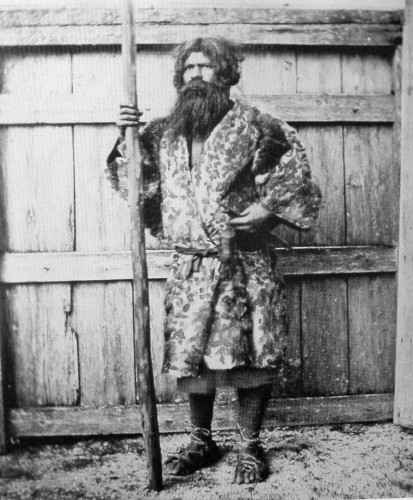
 En 1968, le gouvernement japonais fait un pas en faveur de la communauté en révisant partiellement la loi de 1899 (sans en modifier le caractère discriminatoire) et en proposant des aides sociales. S’inspirant des mouvements de revendications des peuples autochtones de par le monde et des mouvements anti-colonialistes de libération nationale, le mouvement revendicatif ainu adopte une stratégie internationale, se fondant sur la charte internationale des droits de l’Homme.
En 1968, le gouvernement japonais fait un pas en faveur de la communauté en révisant partiellement la loi de 1899 (sans en modifier le caractère discriminatoire) et en proposant des aides sociales. S’inspirant des mouvements de revendications des peuples autochtones de par le monde et des mouvements anti-colonialistes de libération nationale, le mouvement revendicatif ainu adopte une stratégie internationale, se fondant sur la charte internationale des droits de l’Homme.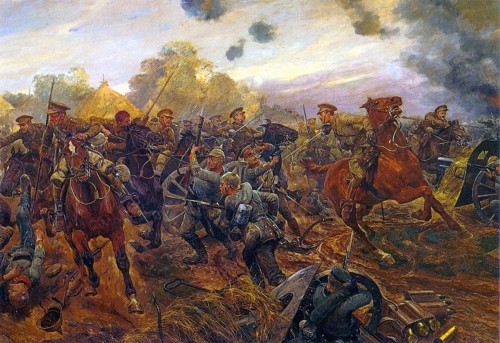
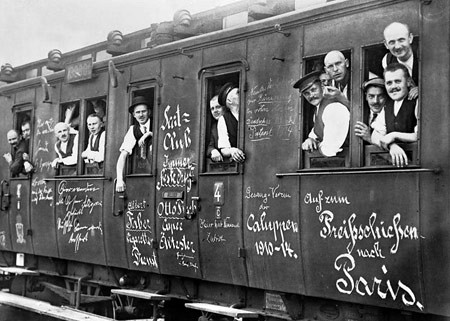
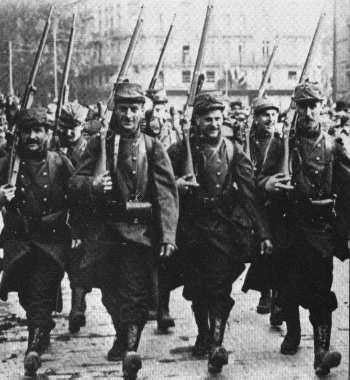 Avant 1914, l’Allemagne était quasiment la puissance hégémonique en Europe. Le Reich wilhelminien avait derrière lui un “boom” économique et militaire vertigineux. Ses succès industriels et scientifiques étaient considérables; les forces qui structuraient sa société avaient été encore consolidées par les lois sociales imposées par Bismarck et par la montée en force de la social-démocratie de Bebel. Le II° Reich wilhelminien, né en 1871, était bel et bien devenu la principale puissance européenne. Il était allié à la vieille monarchie des Habsbourg, au passé glorieux mais désormais épuisée et déchirée. Elle était le vieil Etat impérial, l’héritière du Saint-Empire de la vieille Europe. Le II° Reich la trainaît littéralement dans son sillage. L’Autriche-Hongrie épuisée devait forcément devenir la cible principale des nationalismes exacerbés du Sud-Est de l’Europe, nés à la fin du 19ème siècle. La nouvelle Allemagne, si dynamique, et l’Autriche-Hongrie, résignée à son déclin, formaient un attelage inégal. L’Autriche-Hongrie ne tenait qu’en souvenir de la vieille idée d’unité allemande, que parce que le vieil Empereur François-Joseph se rappelait qu’il était un prince allemand et que les Hohenzollern devaient le respecter, lui et le prestige de l’ancienne impérialité romaine-germanique qu’il incarnait à Vienne.
Avant 1914, l’Allemagne était quasiment la puissance hégémonique en Europe. Le Reich wilhelminien avait derrière lui un “boom” économique et militaire vertigineux. Ses succès industriels et scientifiques étaient considérables; les forces qui structuraient sa société avaient été encore consolidées par les lois sociales imposées par Bismarck et par la montée en force de la social-démocratie de Bebel. Le II° Reich wilhelminien, né en 1871, était bel et bien devenu la principale puissance européenne. Il était allié à la vieille monarchie des Habsbourg, au passé glorieux mais désormais épuisée et déchirée. Elle était le vieil Etat impérial, l’héritière du Saint-Empire de la vieille Europe. Le II° Reich la trainaît littéralement dans son sillage. L’Autriche-Hongrie épuisée devait forcément devenir la cible principale des nationalismes exacerbés du Sud-Est de l’Europe, nés à la fin du 19ème siècle. La nouvelle Allemagne, si dynamique, et l’Autriche-Hongrie, résignée à son déclin, formaient un attelage inégal. L’Autriche-Hongrie ne tenait qu’en souvenir de la vieille idée d’unité allemande, que parce que le vieil Empereur François-Joseph se rappelait qu’il était un prince allemand et que les Hohenzollern devaient le respecter, lui et le prestige de l’ancienne impérialité romaine-germanique qu’il incarnait à Vienne. 